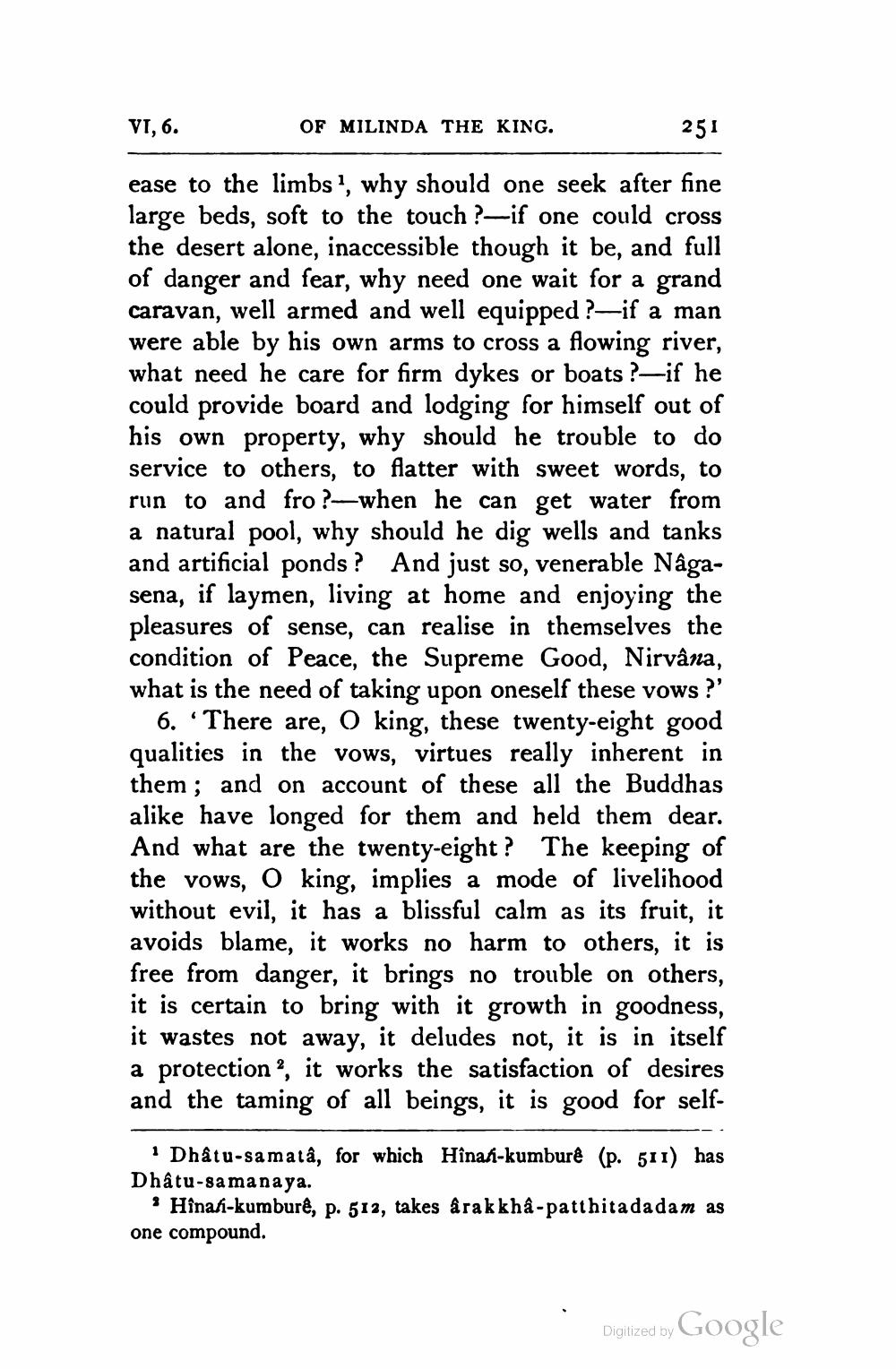________________
VI, 6.
OF MILINDA THE KING.
251
ease to the limbs", why should one seek after fine large beds, soft to the touch ?-if one could cross the desert alone, inaccessible though it be, and full of danger and fear, why need one wait for a grand caravan, well armed and well equipped ?-if a man were able by his own arms to cross a flowing river, what need he care for firm dykes or boats ?-if he could provide board and lodging for himself out of his own property, why should he trouble to do service to others, to flatter with sweet words, to run to and fro ?—when he can get water from a natural pool, why should he dig wells and tanks and artificial ponds ? And just so, venerable Nâgasena, if laymen, living at home and enjoying the pleasures of sense, can realise in themselves the condition of Peace, the Supreme Good, Nirvana, what is the need of taking upon oneself these vows ?'
6. There are, ( king, these twenty-eight good qualities in the vows, virtues really inherent in them; and on account of these all the Buddhas alike have longed for them and held them dear. And what are the twenty-eight? The keeping of the vows, Oking, implies a mode of livelihood without evil, it has a blissful calm as its fruit, it avoids blame, it works no harm to others, it is free from danger, it brings no trouble on others, it is certain to bring with it growth in goodness, it wastes not away, it deludes not, it is in itself a protection?, it works the satisfaction of desires and the taming of all beings, it is good for self
i Dhâtu-samatâ, for which Hînati-kumburê (p. 511) has Dhâtu-samana ya.
? Hinafi-kumburê, p. 512, takes a rakkha-patthitadadam as one compound
Digitized by Google




